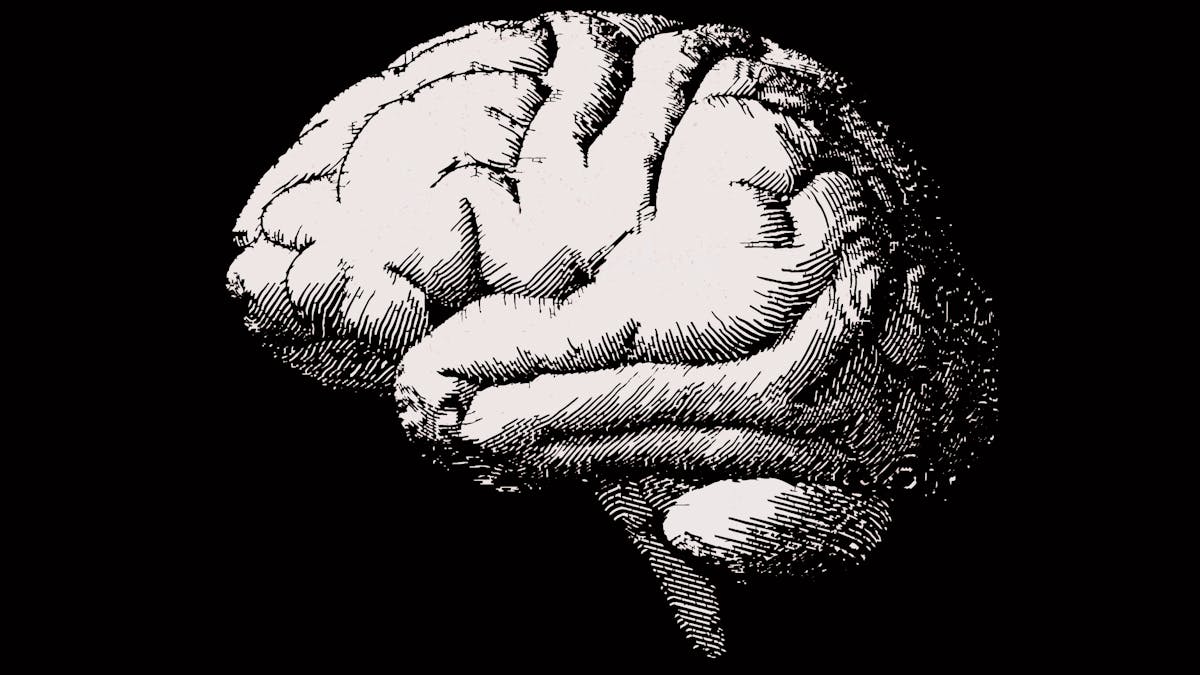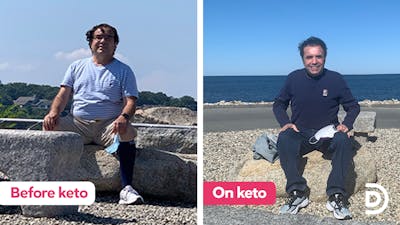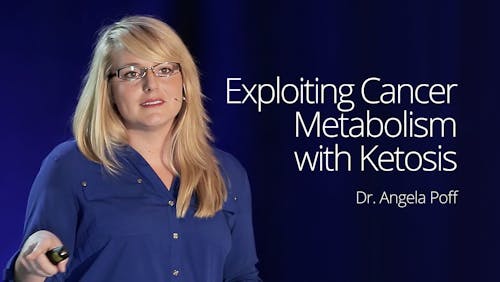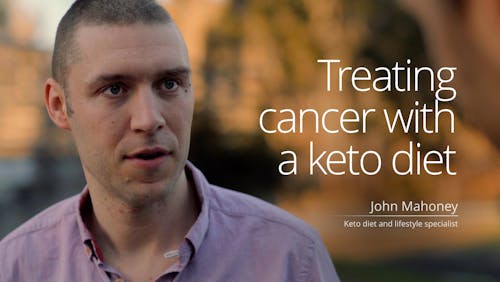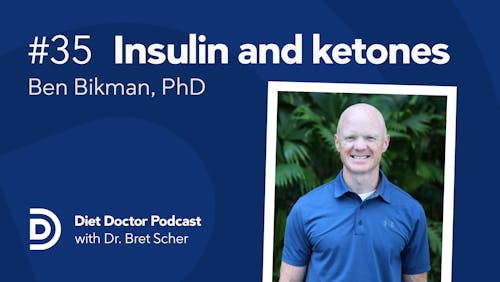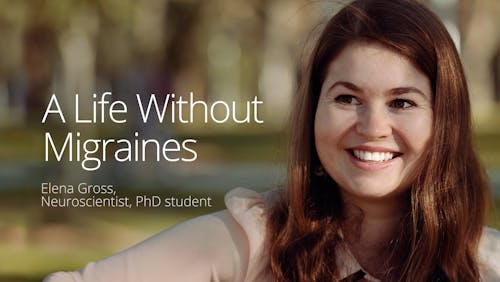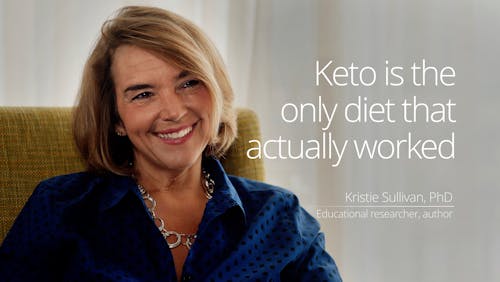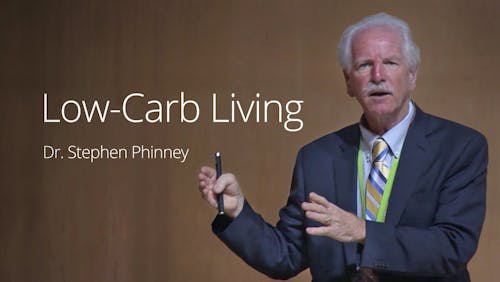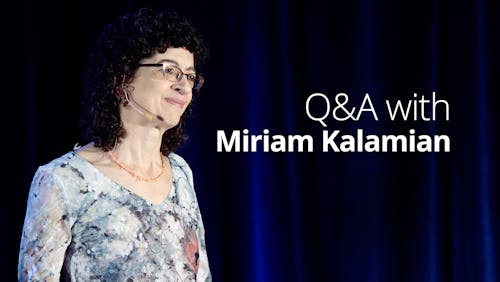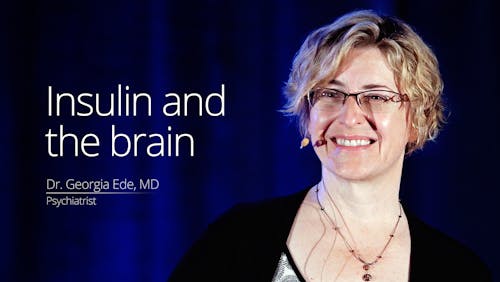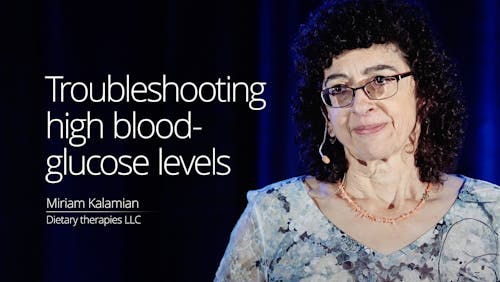Can a ketogenic diet help kids with ADHD, autism and other neuropsychiatric conditions?
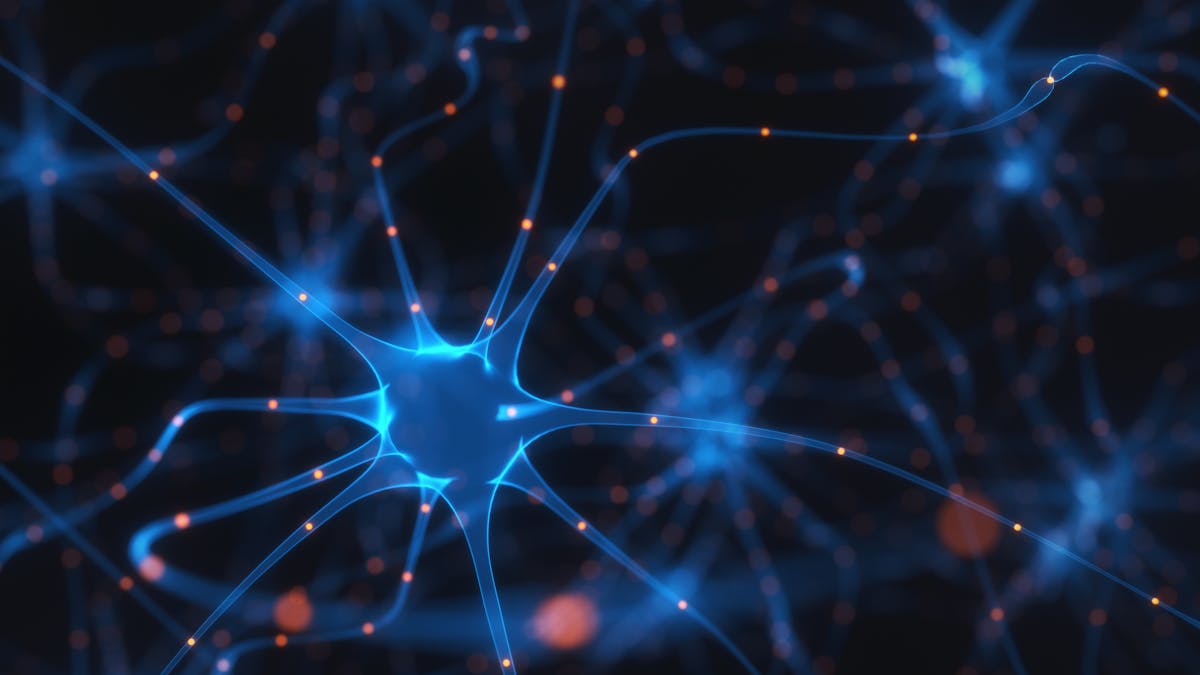
The first portion of this guide details the experiences of a few families who have used a ketogenic diet to treat their child’s neuropsychiatric condition. Their positive experiences are inspiring but should not be taken as strong evidence that a ketogenic diet has a high probability of success for you or your loved ones.2
If you decide to try a ketogenic diet to treat a neuropsychiatric problem such as autism, we recommend that you work closely with a healthcare provider experienced in low-carb nutrition..
When Diet Doctor posted a request asking parents to share their experiences of putting their children on the ketogenic diet to help with attention-deficit hyperactivity disorder (ADHD), autism, and other neurologic conditions, more than a dozen families responded.
Parents from Australia, Germany, South Africa, Canada and the US all reached out. Some of their children had only been on the diet for a few weeks — too soon to see definitive results – but they were hopeful and committed to stick with it.
Others sent inspiring stories or videos of before-and-after transformations.
One of those was the Nusky family of Cincinnati, Ohio, who had previously tried dozens of ways to help their son Brandon manage the symptoms of his Tourette Syndrome. Along with this challenging condition, which causes him to have repetitive vocal and motor tics, he also has obsessive compulsive disorder and ADHD.
It’s a trio — Tourette’s, OCD, and ADHD – that often appear together in some children, leading researchers to suggest there may be an underlying shared neurologic pathway.3
Up until a year ago Brandon’s tics — such as constantly rolling his head from side to side — could be so exhausting and uncontrollable that on bad days he told his parents that he would be better off if he killed himself or if they killed him. He was only seven years old.
“That kind of thing just breaks your heart. We would do anything to help him,” said his mother, Krissy Nusky.
And the family did try everything: veganism, a gluten-free diet, chiropractors, homeopathy, oils, medications, and behavior therapy. “We have spent thousands of dollars and nothing helped,” said Krissy.
Then a year ago, on the advice of their pediatrician, they tried the ketogenic diet. Krissy remembers how the pediatrician posed it. “He said, ‘There is a diet you can do. It is very difficult. Most parents won’t stick with it. But if you do stick with it, it may help.'”
Nothing to lose; everything to gain
The Nusky family felt they had nothing to lose. A year ago the whole family adopted the ketogenic diet — parents, Brandon, and his ten-year-old sister.
And despite the pediatrician’s warning, they have not found it hard at all.
They no longer eat potatoes, rice, flours, grains, sugar, cookies, cake, cereals, porridge, juice, or fruit — except berries. These days their meals are often salads and vegetables with hamburger patties (without a bun) or meat and salad. Krissy now makes homemade keto egg noodles with tomato sauce in place of the spaghetti with chili that used to be a weekly family staple. Another favorite meal is ground beef with taco seasoning in keto taco shells made from cheese and garnished with sour cream.
“I try to keep it interesting and fun for the kids, and give them a choice in what we eat. That makes it go better.” Brandon’s older sister likes to bake, so she has been experimenting with different keto breads and baked-goods recipes from Diet Doctor and other sites.
Each morning Krissy gives Brandon a “keto shake” made with MCT oil, heavy cream, and almond milk blended together. Sometimes she includes protein powder, cocoa powder or fresh berries. On cold mornings she will warm it up, like a hot chocolate. On hot mornings she serves it to him cold, like a milkshake.
And the results have been amazing: the symptoms of all three of his conditions rapidly improved. His tics are now very rare and he is calm, focused and doing well in school. His OCD, which compelled him to keep every action and movement even and equal — such as high fives with both hands, a watch on both wrists — has relaxed.



“The ketogenic diet is the only thing that gives him relief. While it is not a cure, it helps manage all of his major symptoms,” said his mother.
Brandon wants his experience to help others
Krissy shared dramatic footage, seen here, of Brandon’s exhausting tics prior to going on the ketogenic diet, and then a calm and tic-free Brandon doing a bible reading at their church after being on the diet.
“It is really important to Brandon that I share this information in case others can benefit from our experience,” said Krissy, who notes that going keto has actually helped the whole family. Her husband has lost 100 lbs (45 kg) in a year, and she has not only lost weight, but her fibromyalgia and chronic fatigue are also much better. Both Brandon, now eight, and his sister have lost excess body fat and are now at ideal weights for their age and height.
A huge relief to all of them is that Brandon’s distressing suicidal thoughts are also gone. “We don’t have that issue anymore. I feel like the diet has been life-saving in so many ways. I feel like I have my son back.”
Brandon is so committed to the diet now that even when his mom says he can have a piece of cake or another treat on special occasions, he refuses. “He knows how bad it makes him feel.” When they did try introducing low-glycemic fruit, gluten-free pasta and sugar-free ice cream back into his diet at various times, his tics, OCD and ADHD were back within a few hours. “When he had the sugar-free ice cream from Halo-Top, his tics just went crazy. We are never going back to the standard American diet. We are keto for life.”Other parents respond
Nicolas Lorente of Munich, Germany has seen a distinct improvement in his son’s autism and epilepsy. He and his wife Deni put their six-year old son, Angel, on the diet a year ago when he started having repeated seizures that were not controlled by medication. Angel’s autism was diagnosed at age two and his epilepsy at age five. He has a genetic mutation called a SCN2a mutation, which is known to impact the sodium ion channels that regulate the conduction of nerve signals, and is linked to autism and epilepsy.4




In many children whose seizures can’t be controlled with medication, the ketogenic diet has been found to be a powerful treatment for epilepsy.5 Angel’s epileptic seizures have reduced in frequency, and he has been able to stop one of his two seizure medications. But it is the changes in his autism symptoms that have the Lorente family most encouraged. “He is calm, more concentrated, more present. We think he understands more,” said his dad, who is blogging about their son’s progress.
The popular documentary The Magic Pill follows two children with epilepsy and autism as their families convert from a high-carbohydrate, processed-food diet to a low-carb, unprocessed ketogenic diet. Viewers watch as the children’s behavior and symptoms dramatically improve over the course of a few months.
Peggy Holloway, of Nebraska, is convinced that her son’s ADHD symptoms are greatly improved by keto eating and worsened with sugar, junk food, processed food, and red food dyes. She shared his struggles in school, and in life, that at times were so bad “we feared he might not survive his adolescence.” Fortunately, about a decade ago she and her son discovered low-carb, high-fat eating, and both have had dramatic health improvements. Now age 29, her son’s positive experience with the diet is his primary motivation for pursuing a career in nutrition counseling.
“The conclusion of our story is that if any family is dealing with a child with ADHD, please, please at least give a low-carb diet a trial. There is nothing to lose, and if it benefits the child, the family may avoid all the heartache we suffered,” says Peggy.
Research reveals multiple potential avenues of impact
Anecdotal evidence like these families’ stories is inspiring, but what is the research base for putting children with developmental, behavioral, or neurologic conditions on a ketogenic diet?
When it comes to epilepsy, the research is vast and ever-expanding. It is still not yet exactly clear why it works for epilepsy, but it is now well established that it is an effective treatment for seizure control in many, although not all, cases.6 “When scientists began to try to understand how the diet works to control seizures, they uncovered some mechanisms and findings that potentially make it relevant to other neurological diseases,” says Dr. Jong Rho, a world-leading pediatric neurologist, researcher, and expert in ketogenic therapies for pediatric neurologic conditions. Located in Calgary, Canada, Dr. Rho, and his research team, now have more than 115 published medical articles — some basic laboratory research with animal models as well as clinical studies — investigating ketogenic mechanisms in epilepsy as well as in other childhood developmental issues, such as autism.
Dr. Rho notes in a videotaped interview that while the exact action of the ketogenic diet is not completely understood, there are a number of reasons why a keto diet may be effective for better brain function in children with neurologic conditions (which applies equally to brain health in adults). Here are a few of the ketogenic diet’s impacts:7
- Ketones provide the brain with an alternative fuel that can be used to meet some of its energy needs.8 Although the brain requires some glucose, using ketones for a portion of its needs may produce less oxidative stress.9
- Ketogenic diets may help protect the brain by improving the way cells function and communicate within the nervous system and restoring homeostasis, or balance. For example, it may calm nerve cells that are firing too much or ramp up those that are firing too little.10
- It may help lower inflammation, which has emerged as a risk factor for seizures as well as other chronic diseases.11
- It has epigenetic impacts that may inhibit the expression of some genes linked to neurologic problems.12
- It can alter the microbiome of the gut, which may lead to improved communication between the gut and the brain in those with epilepsy.13 Disturbances in gut bacteria have also been linked to autism, and a study in mice suggests a ketogenic diet could potentially be beneficial for those with autism spectrum disorders.14 However, more study is needed in this area.
“There are so many intersecting and potentially synergistic mechanisms that you can’t parse out just one target or one key element,” says Dr. Rho, whose 2018 paper in Neuropharmacology summarized the new findings that ketones may have multiple impacts.15 “It could be a combination of things working together to produce the beneficial effect. But more and more we are showing in the laboratory and in clinical studies that we can render significant benefits just by changing the diet. It is really powerful.”
Another 2018 paper summarized what is known about ketones and the brain: they may enhance energy production, increase nerve cell growth factors, strengthen signals sent between nerve synapses, and reduce brain inflammation and oxidative stress.16 These effects, the paper noted, then seem to have downstream implications for a wide range of brain functional pathways.
The Charlie Foundation was established in 1994 to help support parents of children who follow the ketogenic diet for epilepsy control. This organization now provides support for parents who want to implement the diet in children with a wide array of neurologic conditions. They offer five variations of the keto diet, which differ in the ratio of fat to protein and carbs. These variations can help families fine-tune the diet in a way that works best for them and their child.
Promising published case studies and clinical trials for autism
In recent years there have been promising case reports and preliminary clinical trials in the medical literature, detailing significant improvements in children who were put on a ketogenic diet.
- A 2013 report in the Journal of Child Neurology described the case of a girl with severe autism since the age of 4, who developed epileptic seizures at puberty. She was placed on a dairy-free, gluten-free ketogenic diet for seizure control. Over the course of several years on the diet, not only was she seizure-free, but her behavior and IQ improved so much that she was deemed “non-autistic.” Moreover, her morbid obesity and life-long gastrointestinal issues resolved.17
- In a 2017 report described in the journal Metabolic Brain Disease, 45 children in Egypt with diagnosed autism spectrum disorder were randomly assigned to follow one of three diets for six months. 15 followed a ketogenic diet, 15 followed a gluten-free, casein-free (GFCF) diet, and 15 followed a standard diet as a control. Children on both the ketogenic diet and the GFCF diet showed significant improvement in core features of the autism spectrum disorder, but those on the ketogenic diet had the greatest improvement in social and cognitive functioning.18
- An April 2018 report in the journal Metabolic Brain Disease described the case of a six-year-old boy with autism and ADHD in Poland who was shown on a PET (positron emission tomography) brain scan to have a low uptake of glucose in his brain. Within a month of being placed on the ketogenic diet, he showed a marked improvement in hyperactivity, attention span, communication skills, fear, anxiety and emotional reactions, and adaptability to change.19
- A May 2018 report in the journal Physiology & Behaviour described a clinical trial in which families of 46 children in Hawaii were educated on the ketogenic diet and supplemental MCT oil. Some families dropped out, but 15 of them followed the diet for three months and saw significant improvement in core symptoms of autism. In the 10 subjects who continued on the diet for six months, the improvements were maintained. The authors stressed that the ketogenic diet plus MCT oil is a potentially beneficial diet treatment to improve the core features of autism but needs more long-term investigation.20
An increasing number of families need this information. In the last week of April of 2018, the US Center for Disease Control announced that its surveillance network had found that now 1 in every 59 children is diagnosed as being on the autism spectrum — up 15 percent from just two years ago and up more than 200 percent over the last decade.
Experts in the field who are familiar with ketogenic diets are dismayed that in this day and age it is still seen as outside the mainstream to put a child with autism — or any other neurologic, cognitive or behavioral issue — on a ketogenic diet.
The parents who contacted Diet Doctor about their own children would agree. It’s true we would like higher quality evidence to support it. But in the mean time, many ask, “What do we have to lose and what do we have to potentially gain?”
“People say keto is so hard. But it is not. And I would fly to the moon to help my children, so why wouldn’t I try feeding Brandon a special diet?” said Krissy Nusky. “And if this information can help just one other child, it is worth sharing our story.”
More
Top posts and guides about keto
Top posts by Anne Mullens
Top keto videos
Can a ketogenic diet help kids with ADHD, autism and other neruopsychiatric conditions? - the evidence
This guide is written by Anne Mullens and was last updated on June 17, 2022. It was medically reviewed by Dr. Georgia Ede, MD on January 25, 2021 and Dr. Michael Tamber, MD on January 6, 2022.
The guide contains scientific references. You can find these in the notes throughout the text, and click the links to read the peer-reviewed scientific papers. When appropriate we include a grading of the strength of the evidence, with a link to our policy on this. Our evidence-based guides are updated at least once per year to reflect and reference the latest science on the topic.
All our evidence-based health guides are written or reviewed by medical doctors who are experts on the topic. To stay unbiased we show no ads, sell no physical products, and take no money from the industry. We're fully funded by the people, via an optional membership. Most information at Diet Doctor is free forever.
Read more about our policies and work with evidence-based guides, nutritional controversies, our editorial team, and our medical review board.
Should you find any inaccuracy in this guide, please email andreas@dietdoctor.com.
We must stress the fact that there are no known cures for conditions such as autism, even though there are encouraging data suggesting that certain dietary interventions may improve social, cognitive, and behavioral functioning for some people. ↩
In the interest of intellectual rigor, we must consider that there are other plausible explanations for why their child’s condition improved. Further, our sampling of families is biased, by design, given that families who have not found keto to be helpful did not reach out to Diet Doctor to describe their negative experience. ↩
American Journal of Medical Genetics 2011: The familial association of Tourette’s disorder and ADHD: the impact of OCD symptoms [case-control study with OR of 7.8; weak evidence] ↩
Epilepsia 2019: Phenotypic spectrum and genetics of SCN2A-related disorders, treatment options, and outcomes in epilepsy and beyond [overview article; ungraded] ↩
Epilepsia 2018: Effect of modified Atkins diet in adults with drug-resistant focal epilepsy: a randomized controlled trial [moderate evidence]
Acta Neurologica Scandinavica 2017: A randomized controlled trial of the ketogenic diet in refracatory childhood epilepsy [moderate evidence]
Epilepsy Research 2016: Evaluation of a simplified modified Atkins diet for use by parents with low levels of literacy in children with refractory epilepsy: a randomized controlled trial [moderate evidence] ↩
Nutritional neuroscience 2019: Short-term and long-term efficacy of classical ketogenic diet and modified Atkins diet in children and adolescents with epilepsy: A systematic review and meta-analysis [systematic review of RCTs and observational trials; moderate evidence]
JAMA Pediatrics 2020: Efficacy of ketogenic diet, modified Atkins diet, and low glycemic index therapy diet among children with drug-resistant epilepsy; a randomized controlled trial [moderate evidence]
Epilepsia 2018: Effect of modified Atkins diet in adults with drug-resistant focal epilepsy: a randomized controlled trial [moderate evidence]
Acta Neurologica Scandinavica 2017: A randomized controlled trial of the ketogenic diet in refracatory childhood epilepsy [moderate evidence] ↩
These are theoretical reasons why a ketogenic diet can impact seizures but have not been proven as cause and effect relationships. ↩
Journal of Cerebral Blood flow and Metabolism 2017: Inverse relationship between brain glucose and ketone metabolism in adults during short-term moderate dietary ketosis: A dual tracer quantitative positron emission tomography study
[non-controlled study; weak evidence] ↩This is mainly based on animal and test-tube research:
Nutrients 2017: The 1-week and 8-month effects of a ketogenic diet or ketone salt supplementation on multi-organ markers of oxidative stress and mitochondrial function in rats[rat study; very weak evidence]
Journal of Cerebral Blood Flow and Metabolism 2016: Ketogenic diet decreases oxidative stress and improves mitochondrial respiratory complex activity[rat study; very weak evidence]
Journal of Neurochemistry 2007: Ketone bodies are protective against oxidative stress in neocortical neurons[test-tube study; very weak evidence] ↩
Journal of Lipid Research 2014: Ketogenic diets, mitochondria, and neurological diseases [overview article; ungraded]
Trends in Neurosciences 2013: The ketogenic diet: metabolic influences on brain excitability and epilepsy [overview article; ungraded] ↩
This is mainly based on animal research:
Journal of Molecular Neuroscience 2010: Neuroprotective and anti-inflammatory activities of ketogenic diet on MPTP-induced neurotoxicity[mouse study; very weak evidence]
Neuroscience Letters 2018: Ketogenic diet attenuates oxidative stress and inflammation after spinal cord injury by activating Nrf2 and suppressing the NF-κB signaling pathways[rat study; very weak evidence] ↩
Nutrients 2019: Ketogenic diet: a new light shining on old but gold biochemistry[overview article; ungraded] ↩
Mediators of inflammation 2019: Crosstalk between the ketogenic diet and epilepsy: from the perspective of gut microbiota [overview article; ungraded] ↩
Neuroscience 2016: The microbiota-gut-brain axis and its potential therapeutic role in autism spectrum disorder[overview article; ungraded]
Molecular Autism 2016: Ketogenic diet modifies the gut microbiota in a murine model of autism spectrum disorder[mouse study; very weak evidence] ↩
Neuropharmacology 2018: Do ketone bodies mediate the anti-seizure effects of the ketogenic diet? [overview article; ungraded] ↩
Neurochemistry International 2018: Neuroketotherapeutics: a modern review of a century-old therapy [overview article; ungraded] ↩
It’s important to note that this was an extraordinarily complicated case, and multiple interventions were performed in addition to the keto diet, raising the possibility that other variables contributed significantly to the improvement.
Journal of Child Neurology 2013: Autism and dietary therapy: case report and review of the literature[case study; very weak evidence] ↩
Metabolic Brain Disease 2017: Ketogenic diet versus gluten-free casein-free diet in autistic children: a case-control study [randomized trial; moderate evidence]
↩Metabolic Brain Disease 2018:Therapeutic use of carbohydrate-restricted diets in an autistic child; a case report of clinical and 18FDG PET findings[case study; very weak evidence] ↩
Physiology & Behavior 2018: A modified ketogenic gluten-free diet with MCT improves behavior in children with autism spectrum disorder [non-controlled study; weak evidence] ↩
